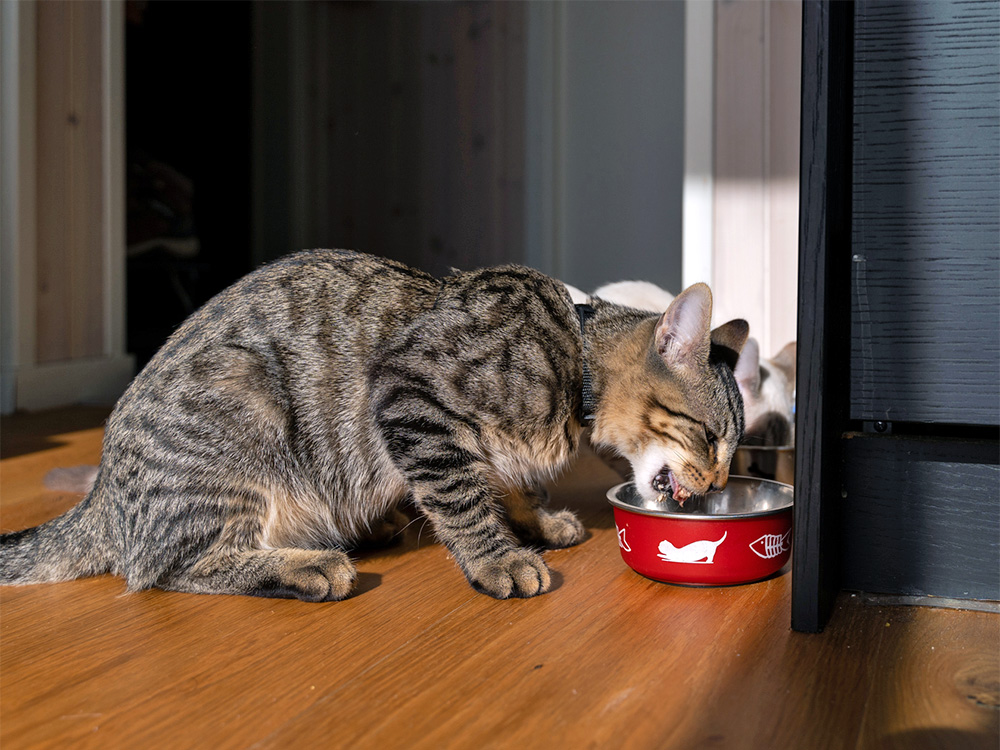2 Oregon Cats Died After Contracting Bird Flu From Raw Food · Kinship Leave a comment
UPDATE: The U.S. Meals and Drug Administration (FDA) has additionally issued a recall for the Wild Coast Boneless Free Vary Rooster System. The FDA widened the recall to incorporate the next tons: #22653, #22641, #22639, and #22672.
This month, two cats from separate households in Oregon contracted hen flu; tragically, their signs had been so extreme that they needed to be euthanized. Friday, after a collection of exams in state and federal laboratories, officers confirmed that the cats contracted the virus from a uncooked meals model.
Get (completely free) offers for meals, treats, equipment, tech, and method extra pet parenting must-haves.
Get Offers
opens in a brand new tab
Samples from each the cats and open containers of pet meals had been taken by the Oregon Division of Agriculture (ODA). They revealed that each cats had consumed Wild Coast Uncooked, a model of cat meals that examined optimistic for hen flu. Additional testing by the Washington State Division of Agriculture (WSDA)opens in a brand new tab discovered that unopened containers of Wild Coast Uncooked had been additionally contaminated, main the WSDA to difficulty a recall.
Recalled tons
The WSDA recalled two plenty of the Wild Coast Boneless Free Vary Rooster System. In case your cat’s meals is labeled with lot quantity 22660 or 22664, with a greatest by date of 12/2025, it is suggested that you simply instantly get rid of the product. The lot quantity and greatest by date will be discovered on a sticker on the lid.
The right way to preserve your cat protected
Whereas the above tons are the one merchandise at present confirmed to be contaminated, consultants are advising towards feeding pets uncooked meals as hen flu instances improve. Final month, 5 cats in Los Angeles had been contaminated with H5N1opens in a brand new tab after consuming Monarch Uncooked Pet Meals. In December, one other Oregon cat handed awayopens in a brand new tab after contracting hen flu from a frozen uncooked pet meals bought by Northwest Naturals. And as H5N1 spreads, some veterinarians fear the issue may worsen.
“Uncooked meals nonetheless is at all times going to be a danger, not only for this virus, however actually any pathogen that may cross by means of that meat, that product, into the animals,” Dr. Ryan Scholz, the state veterinarian on the Oregon Division of Agriculture, informed KGW.opens in a brand new tab “Cooking, pasteurization is designed to kill these micro organism and activate the viruses. Any time you take away that stuff from the method, that is going to be a danger.”
Cats must also keep away from consuming unpasteurized milk; uncooked milk has equally been linkedopens in a brand new tab to the unfold of avian influenza. Pets and other people ought to keep away from contact with wild birds, and a few veterinarians advocateopens in a brand new tab conserving cats inside solely.
Signs of hen flu in cats
With hen flu instances on the rise, it’s essential to know the indicators to look out for — particularly in case your cat has entry to wild animals or eats a uncooked meals eating regimen. “Pets with H5N1 infections might have a fever, lethargy, low urge for food, reddened or infected eyes, discharge from the eyes and nostril, problem respiratory, and neurological indicators like tremors, seizure, incoordination, or blindness,” the WSDA shared. In case your cat exhibits these signs, they need to obtain veterinary consideration instantly.
In accordance with the CDC, the present public well being danger of hen flu is low.opens in a brand new tab The WSDA provides that no human infections have resulted from contact with contaminated pet meals, however warning must be taken; pet dad and mom ought to totally wash their arms after dealing with uncooked meals and sanitize any surfaces the meals touched. You probably have signs of hen flu — together with cough, physique aches, fever, and nausea — after dealing with a contaminated product, it’s best to go to a healthcare supplier as quickly as attainable.


